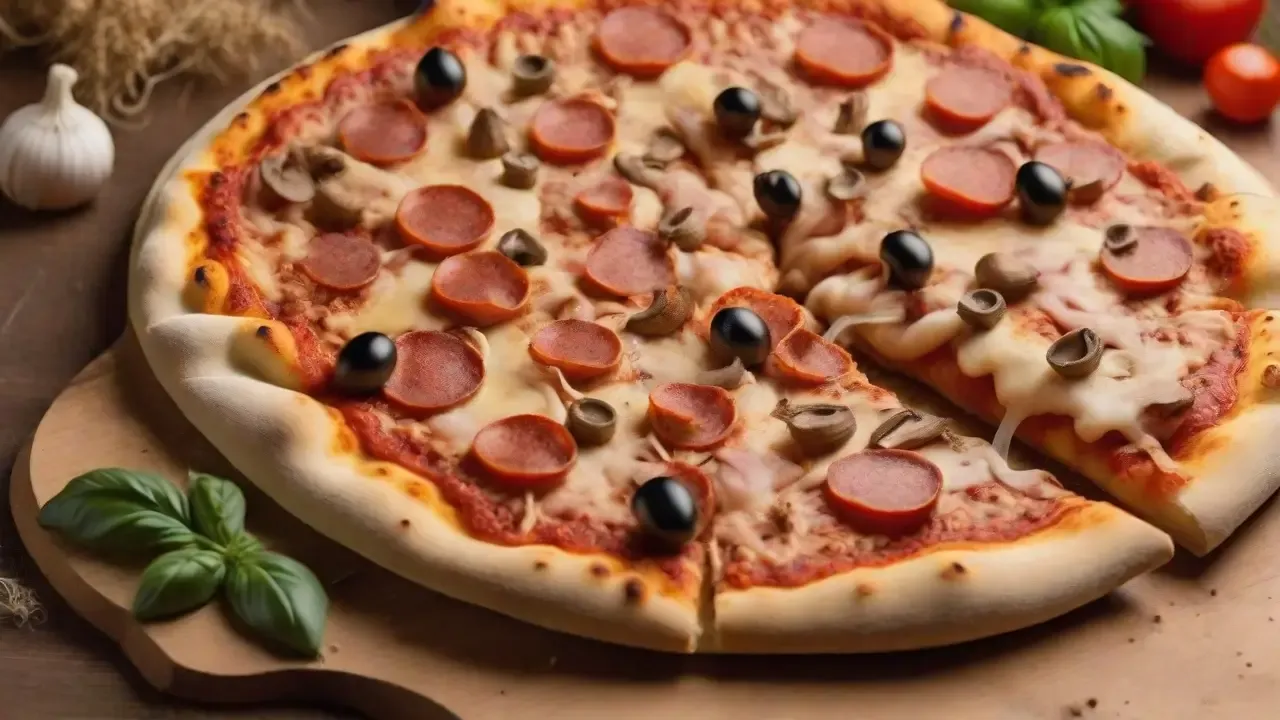Pizza and Celiac Disease
When it comes to celiac disease, dietary decisions require careful consideration. One question that often arises is whether pizza is safe for individuals with celiac disease. In this article, we'll delve into the world of celiac disease, explore its relationship with pizza consumption, and provide valuable insights for those seeking clarity on this topic.
 |
| Is Pizza Bad for Celiac Disease? |
Table of Contents
- Introduction
- Celiac Disease and Gluten
- Pizza and Celiac Disease
- Making Safe Pizza Choices
- Living with Celiac & Craving Pizza
- Addressing Common Concerns
- Conclusion
Celiac Disease and Gluten
Celiac disease is an autoimmune disorder triggered by the consumption of gluten, a protein found in wheat, barley, and rye. When individuals with celiac disease ingest gluten, their immune system reacts by damaging the lining of the small intestine, leading to various digestive and health issues.
Pizza and Celiac Disease
Pizza is a popular dish that typically contains gluten-rich ingredients such as wheat-based crust, which poses a challenge for individuals with celiac disease. Traditional pizza crust is a no-go due to its gluten content, as it can lead to discomfort and complications for those with the condition.
Making Safe Pizza Choices
Fortunately, the rising awareness of celiac disease has prompted many pizzerias and restaurants to offer gluten-free options. These alternatives often use ingredients like rice flour or almond flour to create a crust that caters to individuals with celiac disease. When dining out or ordering in, look for establishments that provide certified gluten-free pizza options.
Living with Celiac & Craving Pizza
Living with celiac disease doesn't mean you have to give up on enjoying pizza. Thanks to the availability of gluten-free ingredients, homemade pizza can be a safe and delicious option. Experiment with gluten-free crust recipes and load up your pizza with fresh, gluten-free toppings like vegetables, lean proteins, and dairy products.
Addressing Common Concerns
Q: Can't I just remove the toppings with gluten from a regular pizza?
A: Unfortunately, cross-contamination can still occur, making this approach risky for individuals with celiac disease.
Q: Are frozen gluten-free pizzas a safe option?
A: While some frozen gluten-free pizzas are safe, it's essential to read labels carefully and choose reputable brands to ensure they are certified gluten-free.
Conclusion
In conclusion, navigating pizza consumption with celiac disease requires thoughtful choices. Traditional pizza crust containing gluten can be harmful to individuals with celiac disease. However, the growing availability of gluten-free options, both in restaurants and for homemade recipes, means that pizza can still be enjoyed safely. By making informed decisions and prioritizing certified gluten-free options, individuals with celiac disease can savor the flavors of pizza without compromising their health.
Frequently Asked Questions
Q: Is it safe to assume that all gluten-free pizzas are celiac-friendly?
A: While many gluten-free pizzas are suitable for those with celiac disease, it's crucial to verify that the establishment follows proper practices to prevent cross-contamination.
Q: Can celiac individuals ever tolerate gluten?
A: No, individuals with celiac disease must adhere to a strict gluten-free diet to prevent adverse reactions and long-term complications.
Q: Are there any alternative flours that are safe for celiac individuals?
A: Yes, flours made from rice, almond, coconut, and tapioca are commonly used in gluten-free baking and cooking.
Q: How can I satisfy my pizza cravings without gluten?
A: Get creative with gluten-free crust options or explore cauliflower crusts, which have gained popularity as a gluten-free alternative.
Q: Should I be concerned about hidden sources of gluten in pizza toppings?
A: Absolutely, some processed meats, sauces, and even cheeses can contain hidden gluten. Always read labels and inquire about ingredients when ordering.
Q: What are some good practices for avoiding cross-contamination at home?
A: Use separate utensils, cutting boards, and baking sheets for gluten-free cooking. Clean surfaces thoroughly before preparing gluten-free meals.
Q: Can children with celiac disease safely enjoy pizza?
A: Yes, many children with celiac disease can enjoy gluten-free pizza. It's essential to monitor their dietary needs and choose safe ingredients.
Q: Are there any ongoing studies about gluten sensitivity?
A: Research about gluten sensitivity and related conditions is ongoing. Staying informed about the latest findings can help individuals with celiac disease make informed choices.
Q: Can celiac disease develop later in life?
A: Yes, celiac disease can develop at any age, so it's important to be vigilant about symptoms and consult a healthcare professional for proper diagnosis.
Q: What other gluten-free alternatives can I explore beyond pizza?
A: The world of gluten-free eating has expanded significantly. You can explore pasta, bread, baked goods, and more, all made with gluten-free ingredients.
Q: How can I help friends and family understand my dietary needs?
A: Education is key. Share information about celiac disease and its dietary implications with your loved ones, and offer suggestions for accommodating meals.
Q: Are there any support groups for individuals with celiac disease?
A: Yes, many communities offer support groups or online forums where individuals with celiac disease can connect, share experiences, and exchange advice.


